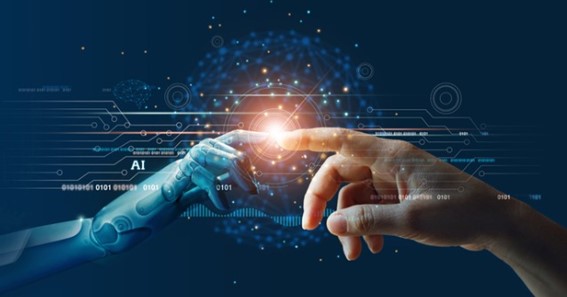In the era of increased efficiency and the pursuit of perfection, taking up AI and machine learning courses has become a wise decision. As the world grapples with the enduring effects of a devastating pandemic and an ongoing recession, human errors can exacerbate the challenges we face. However, automation has the potential to alleviate these issues by outsourcing mundane tasks, reducing fatigue, and minimizing the accumulation of errors. Consequently, the popularity of AI and machine learning courses is surging, as the demand for automation and skilled professionals in this field continues to rise. This article will explore the opportunities that can be unlocked through pursuing such courses, with a particular focus on the education sector and its alignment with industry needs.
The Automation Education Sector
Automation institutes must possess state-of-the-art infrastructure and uninterrupted facilities to deliver knowledge to aspiring individuals. As a result, these institutes are strategically located near major industrial urban centers to foster seamless interaction with contemporary industries. The symbiotic relationship between automation and education is flourishing, as major industrial forces rely on educational institutions to cultivate competent professionals. By studying in industry-aligned institutes, students gain exposure to relevant activities and become adept at handling the responsibilities they will face in their careers.
Essential Traits of Good AI and Machine Learning Courses
The quality of machine learning and artificial intelligence courses is determined by their alignment with industry standards. Institutes offering these courses must be closely connected to the modern industrial landscape. The experience and academic background of the faculty members are vital in ensuring the relevance of the courses, as only practitioners can effectively deliver knowledge aligned with current industry trends. Additionally, a good AI or ML course should have a dynamic curriculum that is frequently updated to meet changing industry demands.
This approach ensures that graduates are ready to contribute to the industry from their first day at work. Moreover, industry-aligned courses should provide ample opportunities for relevant skill development and focus on placing students in roles that align with their strengths and interests. Institutes offering these courses must communicate transparently, avoid false promises, and provide complete information about fees, terms, and relevant contacts for validation.
Opportunities
- Transport: The emergence of self-driving vehicles has transformed the transportation sector, offering enhanced safety and convenience. These vehicles can learn through unsupervised paradigms and provide users with a hassle-free travel experience when coupled with modern navigation systems. Automation professionals play a pivotal role in this sector, and as the demand continues to grow, the opportunities within it will become increasingly lucrative.
- Healthcare: Remote diagnostic devices are revolutionizing the healthcare sector, transmitting diagnostic information to healthcare AI systems. Through analysis, AI systems can issue alarms and notifications, allowing patients at risk of rapid-onset diseases to live hassle-free lives. Furthermore, computer vision and automated image processing techniques are transforming diagnostic paradigms, leading to remarkable success rates. However, employment in healthcare requires not only the completion of AI and machine learning courses but also years of relevant experience and a profound understanding of one’s role to serve with finesse.
- Marketing: Automated chatbots and suggestion bots have become invaluable engagement tools in the marketing sector. By leveraging massive amounts of data, marketers can pinpoint potential customers and engage them through NLP-based tools such as ad bots and suggestion bots. These innovations are reshaping marketing strategies and optimizing the use of financial and human resources. Customer support bots are also deployed to assist with troubleshooting after a product is purchased, further streamlining marketing processes.
- Automated Kitchen: The advent of automated kitchens, exemplified by Moley, the world’s first automated kitchen, is transforming the culinary landscape. Moley can cook dishes developed by premier chefs with just a few taps on a smartphone, provided the recipe is pre-installed and the ingredients are adequately loaded. This automation revolution holds the potential to address world hunger, making automation professionals indispensable in this sector. The maintenance of these advanced tools requires long-term assistance, offering diverse roles and responsibilities.
Click here – What Is HEPES?
Conclusion
The increasing reliance on automation presents promising prospects for enthusiasts in the field. Although ethical concerns exist regarding the implementation of automation, the advantages and blessings it brings far outweigh any shortcomings. As automation progresses, job losses may occur, and errors in training these tools could even result in the loss of human lives. Consequently, employers seek adeptness in candidates, emphasizing years of industry experience and a strong sense of responsibility. By pursuing AI and machine learning courses in 2023, individuals can equip themselves with the necessary skills to navigate the evolving landscape of automation, contributing to its responsible and effective implementation.
